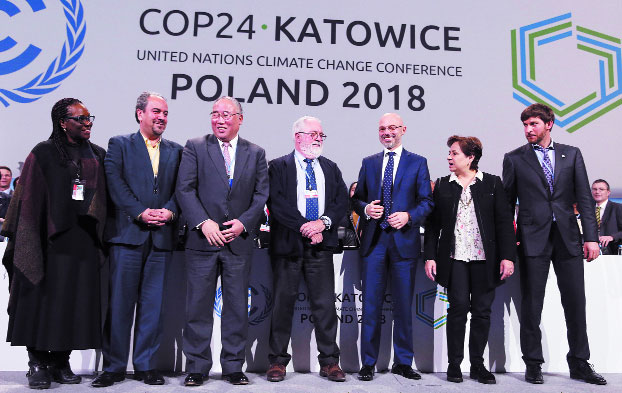Did the recently concluded climate talks in Katowice, Poland achieve anything at all?
The world is warming up and its climate is going totally out of whack. Extreme weather phenomena such as the Kerala floods earlier this year are wreaking havoc across the world, putting people in harm’s way and could even signal the end of days as many religious holy books predict. And here is the funny thing — we have known about humanity’s impact on the planet for decades now, we have physically seen the disappearance of Himalayan glaciers and huge chunks of ice the size of a small Indian state break away from the Antarctic ice shelf. Yet when it comes to doing something about them, the solutions we know about appear impossible to implement. So every few years global leaders and scientists sit down at a place to thrash out the details on how to redress the crisis.
But much like a heroin addict who finds it impossible to go cold turkey when the time comes to make tough choices, there is much hand-wringing. Here is a truism, humanity is addicted to carbon and those of us who can afford it love the good life. The use of air-conditioning, for example, the very nature of which increases the local temperature even more, cannot be begrudged by anyone who has seen a Delhi summer. Yet, as more and more Indians can afford cooling, the irony is that they are participating in the warming of the planet. Therein lies the rub. How do you and how can you deny the new middle-class in India their aspirations? Whether it is an energy-inefficient car compared to a motorcycle or new consumer durables such as a washing machine, do we say that this is not for you or do we embrace low-cost manufacturing and agree that everyone should have a level of equal access to modern conveniences?
So at Katowice, the hand-wringing continued. We know that we are in the midst of a crisis but the crisis hasn’t hit as yet, or rather it has in fits and starts. Sea level rises have not displaced millions till date but can politicians increase the taxes on petrol beyond a point even if they realise the carbon implications of burning more petrol and diesel? Can any politician or bureaucrat tell people that they should be judicious when they use their air-conditioning? We tried that in India and elite liberals saw that as government ‘interference.’ After all the rich, whether they are nations or rich citizens, do not want to pay the price of changing their habits. They would want air-conditioning and car ownership restricted but not for themselves. So the result at Katowice, where after 13 days of talking the only conclusion was that we should try and prevent global temperatures from rising beyond 1.5C by 2030, was far from ideal. By that time it may be too late to drive more change. The global impact of a warmer world will be felt by all of us, rich and poor alike although the latter will be harder hit. It is contingent upon politicians to understand that they need to educate their people about the impact of climate change. We might feel the impact of climate change in a sputtering manner right now but by 2030 it might be too late.


























